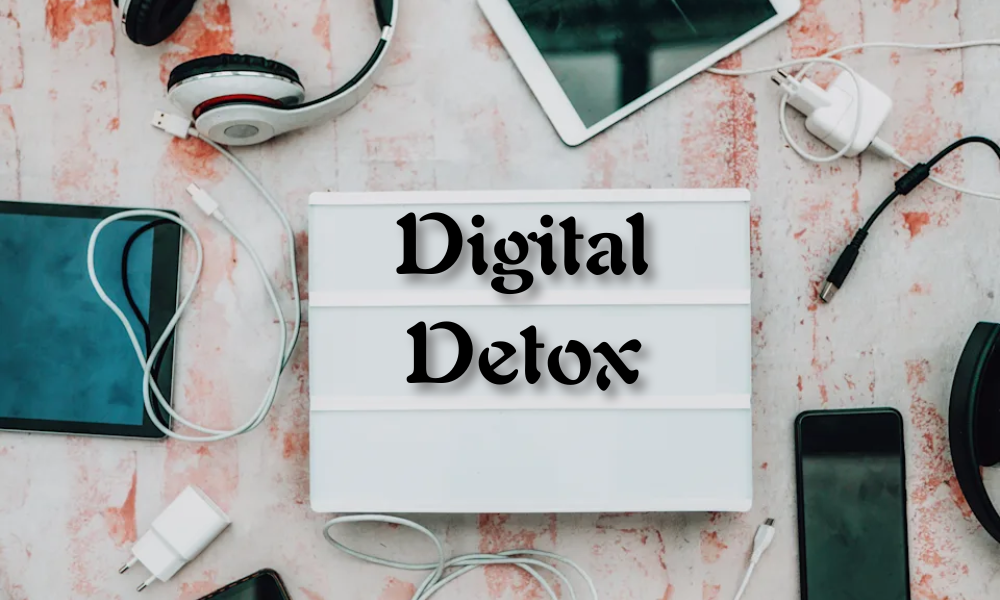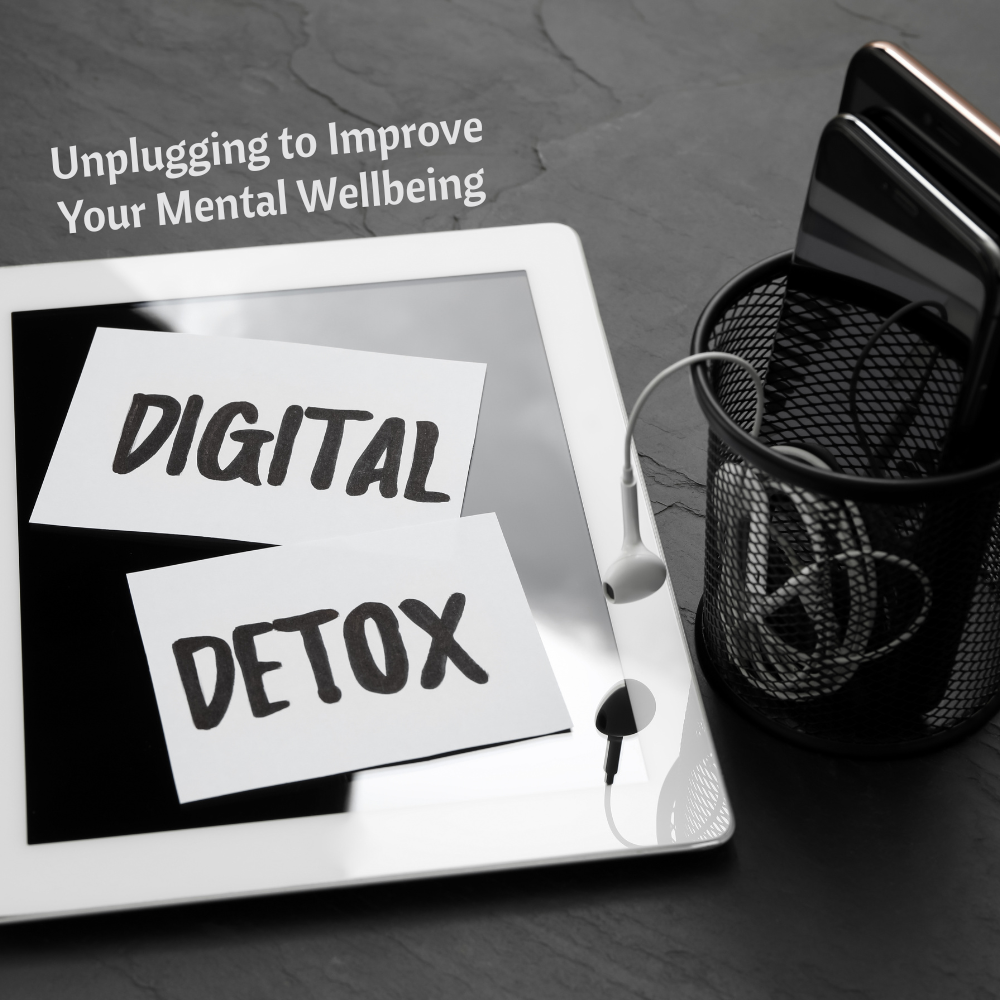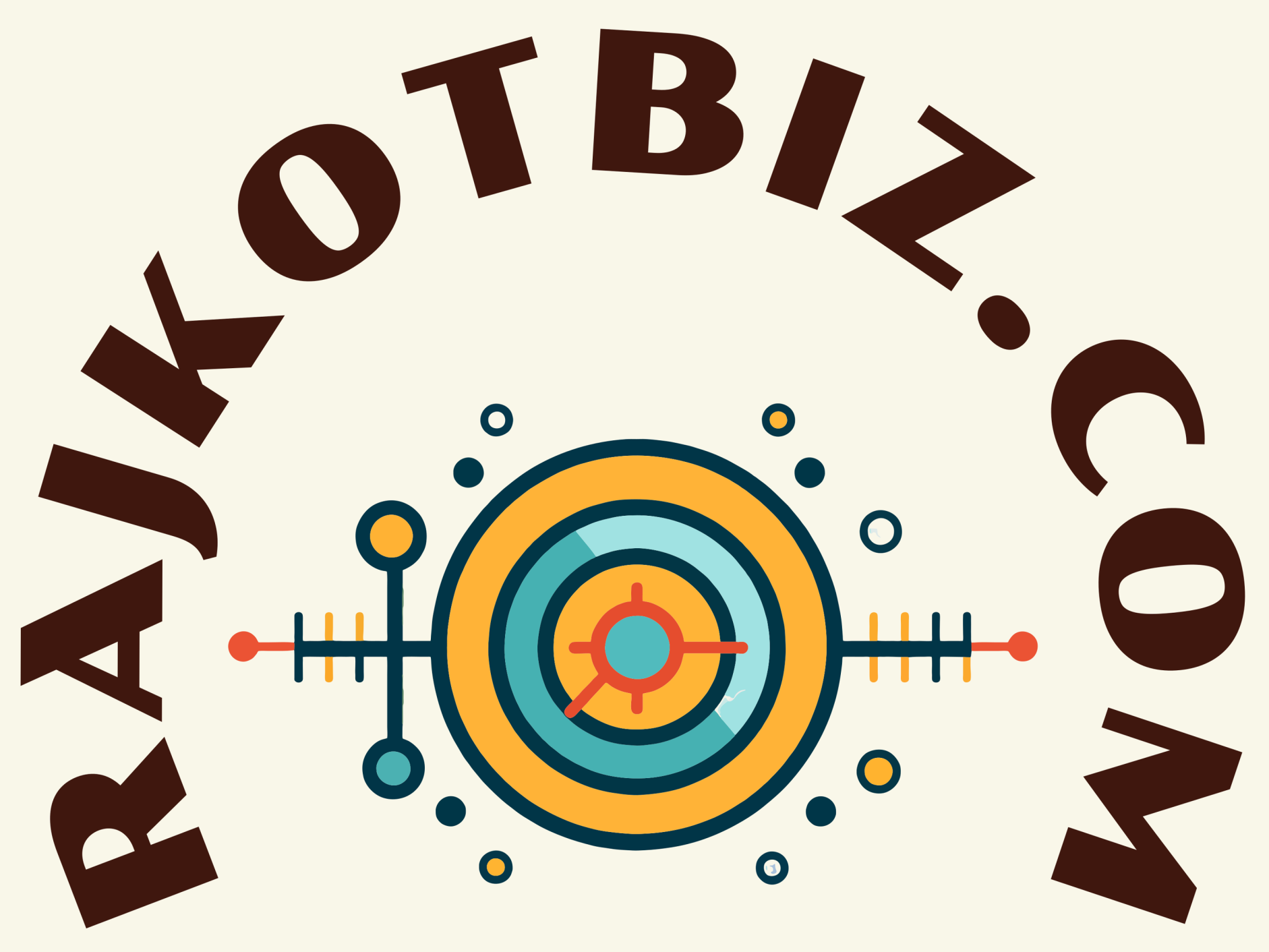
We are surrounded by screens all day and night. We rely on smartphones, laptops, and the Internet more, even though they are an integral part of our lives. While technology connects us to the world, it’s also causing a silent crisis: digital fatigue, anxiety, and chronic distraction
A digital detox isn’t about staying away from tech completely—it’s about regaining control. It includes creating opportunities for mindfulness, working on your well-being, and focusing on things that matter. Here are the benefits of staying healthy, along with tips for doing so even if you aren’t sure where to start.
- The Silent Crisis: Digital Overload
Have you ever found yourself scrolling unconsciously on social media for an extended period after looking at the time on your phone? Many people have similar experiences to yours. The purpose of the digital world is to attract you.
According to statistics, the average person checks their phone over 96 times a day, often without even realizing it. Social media, video apps, and emails are designed to stimulate the brain’s dopamine, making them attention-grabbing. Sadly, it also has a negative aspect.
As a result, our attention spans become shorter, and we experience bad sleep and high levels of stress. A recent study by the American Psychological Association suggests that people who use their smartphones heavily are more likely to feel anxious, lonely, and depressed. It also affects real life by encouraging people to choose social media instead of interacting with others.
Being exposed to too much information and content gradually wears down your thoughts, imagination, and feelings. The worst of it all? Most people aren’t aware of it until they feel the effects of burnout.
- What is a Digital Detox?
A digital detox is a period during which a person refrains from using electronic devices such as smartphones, computers, and tablets. You can do this by putting down your electronic devices and focusing your attention.
To detox, you don’t have to get rid of all your apps and destroy your phone. It involves choosing healthy limits. In other words:
- Turn off the notifications.
- Detaching yourself from social media for a few days
- Not checking your emails after work hours
- Turning off gadgets for sometime every day
Whether you spend an entire weekend without technology or just one hour, the goal is to enjoy being with your family in nature and focus on the hobbies you’ve neglected.
- Why You Need to Unplug: Proven Benefits of a Digital Detox
You may be wondering—what’s the point of unplugging? Studies have shown that the benefits can help transform several areas of your life.
1.Boosts Mental Health
Using social media a lot is linked to experiencing anxiety, depression, and lower self-esteem. Detoxing gives your mind time to calm down after being exposed to endless comparisons and information.
2. Improves Sleep Quality
Viewing screens before going to sleep decreases melatonin and results in lower-quality sleep. If you stop using your gadgets an hour before going to bed, you will sleep better and uninterrupted.
3. Enhances Focus & Productivity
Constant notifications and app-switching train your brain to crave distractions. Going on a digital detox can increase your ability to pay attention and improve your mental skills
4. Strengthens Real-Life Relationships
You can once again concentrate on those around you after you detox. You become more attentive, take part in the conversation, and restore the warmth of your relationships.
5. Physical Health Benefits
Spending more time watching TV or using a computer leads to less exercise and an unhealthy posture. Then, closing your device often makes you more active, causes less strain on your eyes, and benefits your health.
- Signs You Desperately Need a Digital Detox
Sometimes, your mind and body give you clear signs that you need to step back. Look out for these red flags:
- When you are without your phone, you become anxious.
- Whenever you feel bored, you keep on scrolling.
- After you wake up and before you go to sleep, you check your phone.
- You can feel a vibration in your pocket even if your phone doesn’t buzz.
- Using social media makes you feel exhausted and sad.
- You usually spend more than 5 to 6 hours on screen, often for no reason.
The first thing to do is recognize these signals. Afterward, it is essential to take action.
- How to Start a Digital Detox (and Stick to It)
Getting off your phone may sound scary, but it isn’t always necessary to do everything at once. I have a plan for you to follow that can help you detox without getting too anxious:
- Start with a Daily Tech-Free Hour
For one hour every day, maybe during breakfast or bedtime, keep all electronics away from you and your family.
2. Turn Off Non-Essential Notifications
Turn off notifications from social media, shopping applications, and news. Giving yourself a break will be good for your mind.
3. Create Tech-Free Spaces
Minimize the use of gadgets in your bedroom, dining space, and bathroom. It helps your mind connect those places with a feeling of peace and tranquility.
4. Use Tools to Manage Screen Time
Applications such as Forest, Freedom, Stayfree, or Digital Wellbeing enable you to observe screen usage and stop yourself from using distracting apps.
5. Replace Screen Time With Meaningful Activities
Try spending your free time with a book, going for a walk, cooking, journaling, meditating, or with a creative hobby.
6. Inform Friends and Family
Make it clear you are on a detox so others don’t feel their messages are going unnoticed.
7. Schedule Detox Days Regularly
You won’t have to detox for a very long time—only regularly to restore stability. Start by setting aside one day each week or a weekend every month.

- Life After a Detox: What to Expect
In the beginning, you may sense you’re not comfortable because your brain is reorganizing. With time, you will observe that
- Sharper focus
- Deeper sleep
- More patience
- Better conversations
- Time spent feeling relaxed and understanding
Overall, you’ll figure out technology for specific reasons rather than relying on habits. Mindless scrolling will be replaced by choosing what you want to view or staying off the app altogether.
You might discover that a lot of your life was wasted without your knowledge, and being conscious of your actions makes you feel much better.
Conclusion
Since attention is the most valuable resource nowadays, deciding to log off is an act that enhances your well-being and strength. A digital detox isn’t just a trend; it’s a survival strategy for modern life. It allows you to take a break, get refreshed, and focus your thoughts on what counts. No matter how long you go without technology, you will see the good in various aspects of your life. Get started today; it will make you happier and healthier.



